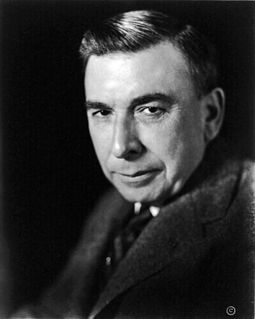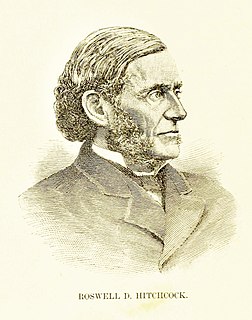A Quote by Charles Kingsley
You must not talk about 'ain't and can't' when you speak of this great wonderful world round you, of which the wisest man knows only the very smallest corner, and is, as the great Sir Isaac Newton said, only a child picking up pebbles on the shore of a boundless ocean.
Related Quotes
Socrates said, our only knowledge was
"To know that nothing could be known;" a pleasant
Science enough, which levels to an ass
Each Man of Wisdom, future, past, or present.
Newton, (that Proverb of the Mind,) alas!
Declared, with all his grand discoveries recent,
That he himself felt only "like a youth
Picking up shells by the great Ocean-Truth."
Notwithstanding all that has been discovered since Newton's time, his saying that we are little children picking up pretty pebbles on the beach while the whole ocean lies before us unexplored remains substantially as true as ever, and will do so though we shovel up the pebbles by steam shovels and carry them off in carloads.
...it is only when a man goes out into the world with the thought that there are heroisms all round him, and with the desire all alive in his heart to follow any which may come within sight of him, that he breaks away... from the life he knows, and ventures forth into the wonderful mystic twilight land where lie the great adventures and the great rewards.
As to the Christian religion, besides the strong evidence which we have for it, there is a balance in its favor from the number of great men who have been convinced of its truth after a serious consideration of the question. Grotius was an acute man, a lawyer, a man accustomed to examine evidence, and he was convinced. Grotius was not a recluse, but a man of the world, who certainly had no bias on the side of religion. Sir Isaac Newton set out an infidel, and came to be a very firm believer.
Nothing is so much coveted by a young man as the reputation of being a genius; and many seem to feel that the want of patience for laborious application and deep research is such a mark of genius as cannot be mistaken: while a real genius, like Sir Isaac Newton, with great modesty says, that the great and only difference between his mind and the minds of others consisted solely in his having more patience.
Long ago, Sir Isaac Newton gave us three laws of motion, which were the work of genius. But Sir Isaac's talents didn't extend to investing: He lost a bundle in the South Sea Bubble, explaining later, 'I can calculate the movement of the stars, but not the madness of men.' If he had not been traumatized by this loss, Sir Isaac might well have gone on to discover the Fourth Law of Motion: For investors as a whole, returns decrease as motion increases.
A learned parson, rusting in his cell at Oxford or Cambridge, will reason admirably well upon the nature of man; will profoundly analyze the head, the heart, the reason, the will, the passions, the senses, the sentiments, and all those subdivisions of we know not what ; and yet, unfortunately, he knows nothing of man... He views man as he does colours in Sir Isaac Newton's prism, where only the capital ones are seen; but an experienced dyer knows all their various shades and gradations, together with the result of their several mixtures.
Isaac Watts, of course, is a hymn writer in the tradition of Congregationalism who lived in the seventeenth and early eighteenth century. He is very interesting and important because he was also a metaphysician. He knew a great deal about what was, for him, contemporary science. He was very much influenced by Isaac Newton, for example. There are planets and meteors and so on showing up in his hymns very often. But, again, the scale of his religious imagination corresponds to a very generously scaled scientific imagination.
You are different from the really great man in only one thing: The great man, at one time, also was a very little man, but he developed one important ability: he learned to see where he was small in his thinking, and actions. Under the pressure of some task which was dear to him he learned better and better to sense the threat that comes from his smallness and pettiness. The great man, then, knows when and in what he is a little man.
As the smallest drop of water detached from the ocean contains all the qualities of the ocean, so man, detached in consciousness from the Infinite, contains within him its likeness; and as the drop of water must, by the law of its nature, ultimately find its way back to the ocean and lose itself in its silent depths, so must man, by the unfailing law of his nature, at last return to his source, and lose himself in the great ocean of the Infinite.







































